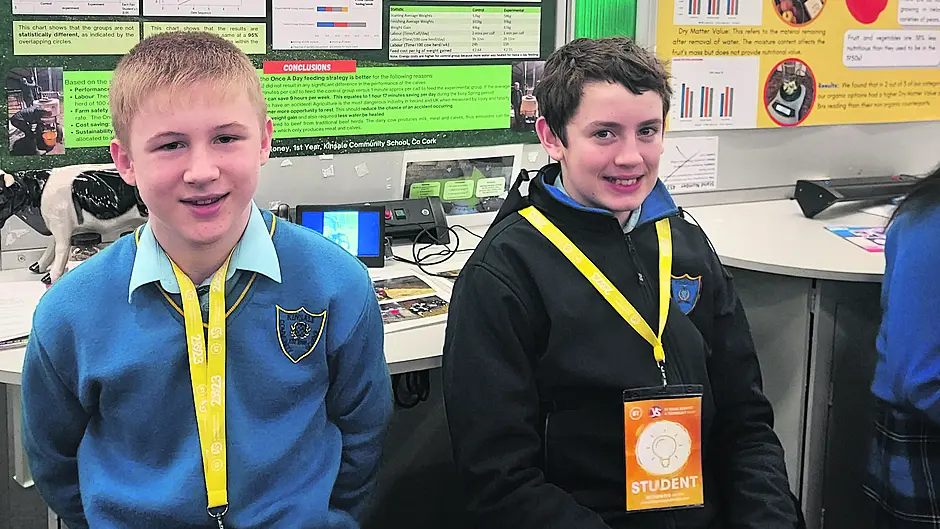Adapted TB belts for vets to help prevent injury, a moveable calf crush and research into once-a-day feeding systems for calves were some of the innovative agri projects in the recent BT Young Scientist Exhibition
TWO Kinsale students have come up with a once-a-day feeding system for calves, that would save farmers time during the busy spring season.
With live animal exports currently in the spotlight from a sustainability and welfare point of view, Paddy Canniffe and Ronan Moloney realised there may be a point in the near future where there will be no live exports, resulting in calves being kept on the farm for longer.
‘With this in mind, we decided to try to identify the most profitable, sustainable, and least labour-intensive option for farmers to yield the best results in Friesian (dairy genetic) bull calves and result in an improvement in calf welfare and less labour for farmers in a busy time of year,’ said Ronan.
The first year students in Kinsale Community School made this the topic of their project for the BT Young Scientist Exhibition where they got excellent feedback.
‘Safety and workplace accidents are a big concern in the agriculture industry, and we believe that by saving the farmer time, they would have more opportunity to rest which should improve farm safety.
‘We also wanted to see if our study would improve sustainability and lower carbon,’ said Ronan, who comes from Ballinspittle.
Using Friesian bull calves on Paddy’s family farm in Ballinhassig they ran experiments for six weeks.
‘We took 20 Friesian calves and split them in two groups. We fed one group twice a day and the other group once a day for six weeks, and compared results,’ said Paddy.
‘Our experiment was a great success, and we made some great time savings.
‘When we scaled it up to a 100-cow herd, we found that a saving of nine hours per week (or one hour and 17 minutes a day) could be made, helping to reduce farmer fatigue and therefore reduce risk of accidents and stress-related illness,’ he added.
Their results also showed that with their once-a-day feeding system there was a lower cost per kilo weight gain and a lower carbon footprint, therefore giving the farmer a lower cost and a more sustainable method of feeding calves.
The pals are hoping to research finishing strategies on the same animals in two years’ time, possibly for a future project.









